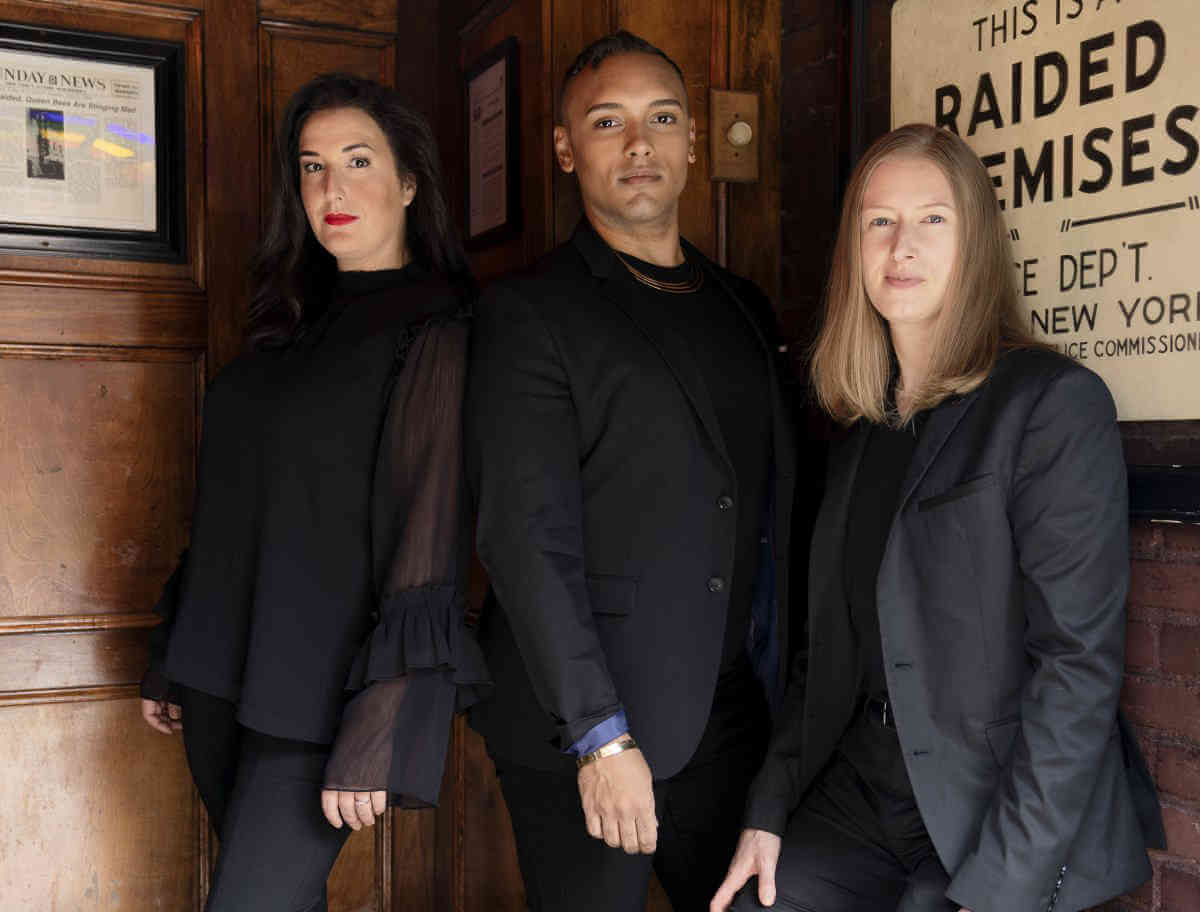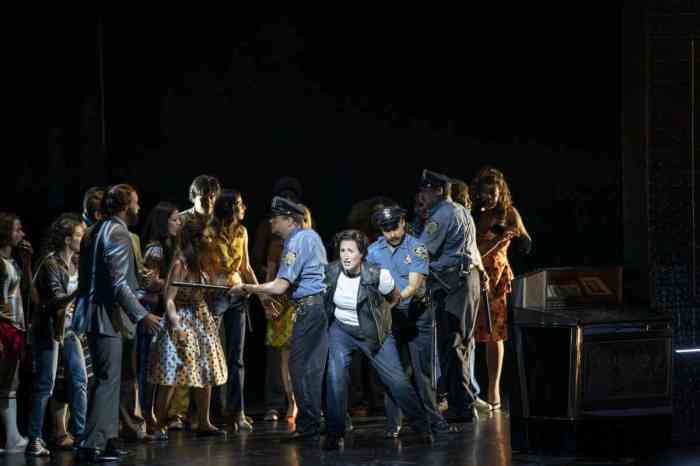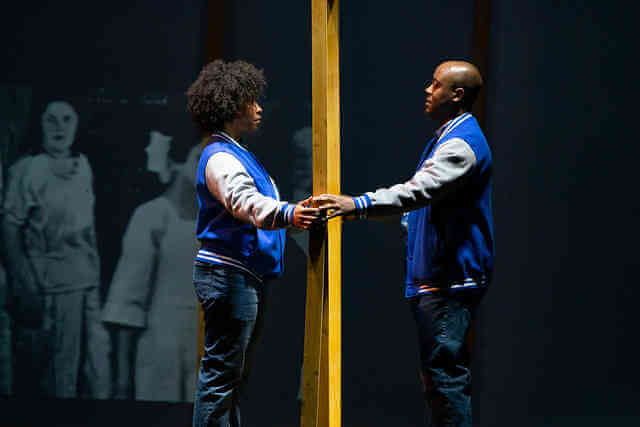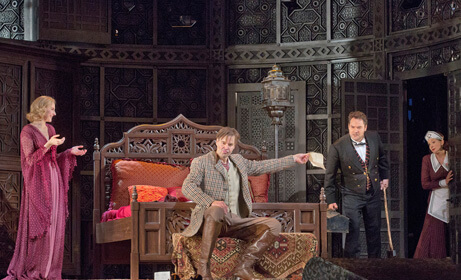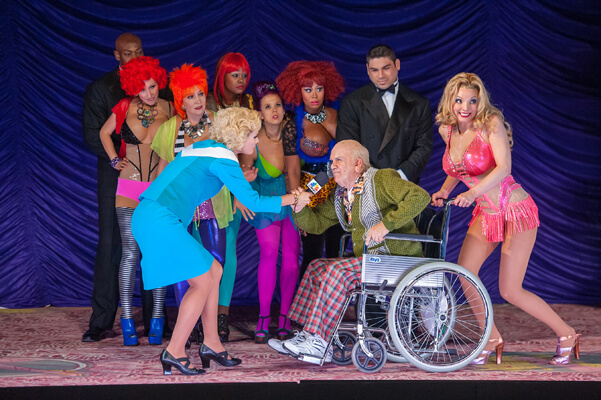On June 21, New York City Opera presents the premiere of “Stonewall,” a newly commissioned opera by British composer Iain Bell with a libretto by Mark Campbell in a production directed by Leonard Foglia. The production honors the 50th anniversary of the Stonewall riots and the 75th anniversary of New York City Opera.
Gay City News spoke to Michael Capasso, the general director of City Opera, as well as the composer and the librettist about this new work depicting the events before, during, and after the riots that erupted on June 28, 1969.
ELI JACOBSON: Mr. Capasso, “Stonewall” is your baby: you came up with the concept, hired the artistic team and put it on the season schedule. What made you commission this piece?
MICHAEL CAPASSO (General Director, New York City Opera): We are the only opera company in the world that has committed to an LGBTQ-themed work in Pride Month. This is installment number three. When I realized that the City Opera 75th anniversary and the Stonewall 50th celebration coincided, it was a no-brainer.
JACOBSON: Iain Bell, you were born 11 years after the Stonewall riots — in 1980. I suspect few among the creators were around Greenwich Village when this happened 50 years ago. Yet how has it affected your life and in what ways? What does Stonewall mean to you as an historical event? How are you presenting it for an audience in 2019?
CAPASSO: Stonewall changed the world. I grew up in a conservative Italian family with no tolerance for the gay lifestyle. But I am in the theater and I have always been surrounded by gay people. They are, to me, just people and should be treated as you would any other. Stonewall made that happen.
IAIN BELL (Composer): Had it not been for the bravery of the community and allies standing up to prejudice and oppression, I believe the rights I now have as a gay man would have been a lot slower in arriving. As a citizen of the UK, I am able to marry, raise a family, have equal rights in the workplace, and be legally protected from societal discrimination based on my sexuality. Had the community born out of the Stonewall Riots not shone such a bright light on the rights of our gloriously diverse community, we may not be where we are now… though it is clear we still have a long way to go. We face global attempts to have these rights rescinded and various members of the LGBTQ+ community still struggle to receive the legal legitimacy they deserve. I feel this will be particularly resonant to a 2019 audience, given that this worrying lurch to the right is so front-and-center as an issue.
Beyond the mythology that has arisen of that sweaty, sticky summer night in the Village, first and foremost, the events of June 1969 represent that archetypal “Enough is enough” moment where a diverse community finds the strength in itself to say, “No more.”
MARK CAMPBELL (Librettist): We reaped some benefits of so many good battles we fought in the 1960s in this country: against racism, misogyny, pollution, war, homophobia, etc. — and yet we’re still fighting those same battles today. The current administration has very clearly and unapologetically shown that it will do everything in its power to strip away the equality we worked so hard to achieve. An opera about Stonewall reminds today’s audiences that we cannot take our rights for granted, that we must always be ready to stand up and fight for what we believe in.

JACOBSON: Mark, there have been many books and historical accounts written by and about the participants and survivors of the Stonewall riots. Are your characters in the opera libretto historical persons or are they composites based on real people? Did you use historical sources and if so, which ones?
CAMPBELL: I created the central characters in the libretto for “Stonewall” based on the diverse people I’ve had the privilege to know and love as a gay man who has lived in downtown New York for several decades. Although I researched the subject pretty thoroughly, the opera is a work of the imagination, not a “docu-opera”; it is much more about the spirit of the event than a faithful reenactment, and tries to capture how a group of people came together with humor, rage, and finally hope to rise up against the police. At the same time, I felt it was important to remind younger generations how difficult it was to be LGBTQ+ in 1969 and so show how many of the characters I imagined are persecuted in their daily lives, among them a butch lesbian who is harassed on the subway and mocked by the police, a Dominican gay man who loses his job as a teacher, a gay teenager who was forced to run away from home and now lives on the streets, and a woman who was made to undergo conversion therapy by her parents to “fix” her attraction to women.
JACOBSON: Iain, does your score reflect the popular music of the late ‘60s by Janis Joplin, Diana Ross, and The 5th Dimension or is it more classical or contemporary?
BELL: Though the opera is sung by un-amplified operatic voices, with an orchestra in the pit, it was a joy to be able to wink to various elements of 1960s music-making throughout, so riffs are explored and harmonic progressions are occasionally more reminiscent of those of popular music of the time than opera. More explicitly, I also wrote two jukebox songs (lyrics by our librettist Mark Campbell), which are in the style of pop music of the time, opening Part II of the opera. These have been recorded by the one and only Darlene Love, who sounds astonishing!
JACOBSON: What do you want the audience to take away from this story and apply to their own lives — gay or straight — in 2019?
CAMPBELL: I’d like nothing more than the LGBTQ+ community to embrace “Stonewall” as our opera. I’d also love for straight people to understand that our fight is their fight and that every one of the LGBTQ+ characters in the opera are their children, their friends, their parents.
BELL: First and foremost, LGBTQ+ rights are human rights. We all benefit from a society that embraces the many voices, differences, and ideals of its members, but these rights can never be taken for granted, nor can we lapse into laziness. Be that spark that lights the dark, be that voice that says, “No… enough” when you witness injustices. We will all be better off for it.
CAPASSO: This is a story of people. I hope the audience will identify with the characters as people, not just gay people.
STONEWALL | New York City Opera | Rose Theater at Jazz at Lincoln Center, Time Warner Center, Broadway at 60th St. | Jun. 21, 22, 27 & 28 at 7:30 p.m.; Jun. 22 at 2 & 7:30 p.m. | $20-$300 at nycopera.com, jazz.org, or by calling 212-721-6500


